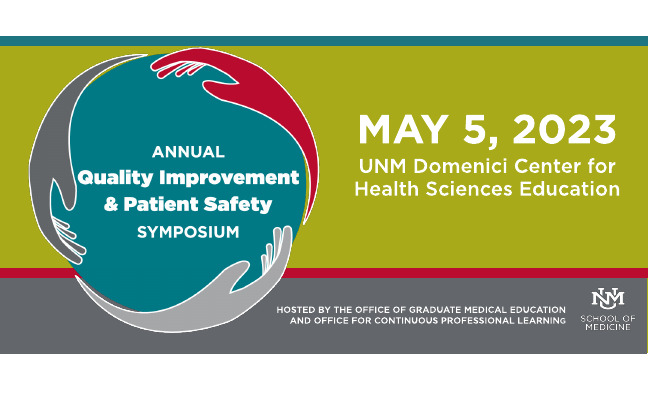Document Type
Poster
Publication Date
5-5-2023
Abstract
INTRODUCTION
Interprofessional communication is an essential tool for providing strong patient care in healthcare settings, particularly in large public hospitals like University of New Mexico Hospital. Several care teams are often involved in the care of one patient (physicians, nurses, PT/OT, pharmacy, etc.). When communication breaks down between care teams, patient care can be greatly diminished or compromised. Lack of coordination and communication amongst different care teams can either affect the patients both directly or indirectly in many ways, potentially leading to extended hospital stays and various poor health outcomes. Several challenges specifically within healthcare settings exist that best exemplify these challenges. (Tingle et al, 2018). For example, the communication environment, information exchange, creating the preconditions for effective communication within a team and communicating with specific groups all potentially serve as areas for communication breakdown within medical practice.
AIM- Briefly state the purpose of your project and desired goals for improvement.
INTERVENTION- N/A, intervention is currently being established and has not been implemented into clinical practice at this time.
DATA COLLECTION AND ANALYSIS- N/A, data collection and analysis currently underway and is not complete at this time.
RESULTS- N/A, no results to report at this time.
DISCUSSION
Possible solutions to the breakdowns in interprofessional communication must be aimed at increasing communication amongst care teams. TigerConnect is perhaps the most widely used communication tool within UNM hospital currently, which allows healthcare workers of all positions to communicate patient-sensitive information in a timely manner. And yet breakdowns in communication between care teams still regularly occur. One potential idea is to establish clear boundaries/expectations for care teams to follow closely, especially during shift changes, a time when precious information must be handed over in an efficient yet effective manner. Formulating comprehensive lists for to-do items has been shown to facilitate the handoff process and alleviate unnecessary complications associated with communication breakdowns. Many resident physicians spend dedicated time to update caches and ensure all orders are placed in timely fashion, an effective method I have seen work firsthand. Lastly, it is important to emphasize this notion of professional humility and recognize when it is essential to ask for clarification from others within the workplace. In doing so, patient care is at its best and most effective.
Recommended Citation
Maez, Devin Alexander. "Examining Interprofessional Communication in Healthcare." (2023). https://digitalrepository.unm.edu/hsc_qips/77


Comments
Poster Presented at UNM Health Sciences Center Quality Improvement & Patient Safety Symposium 2023